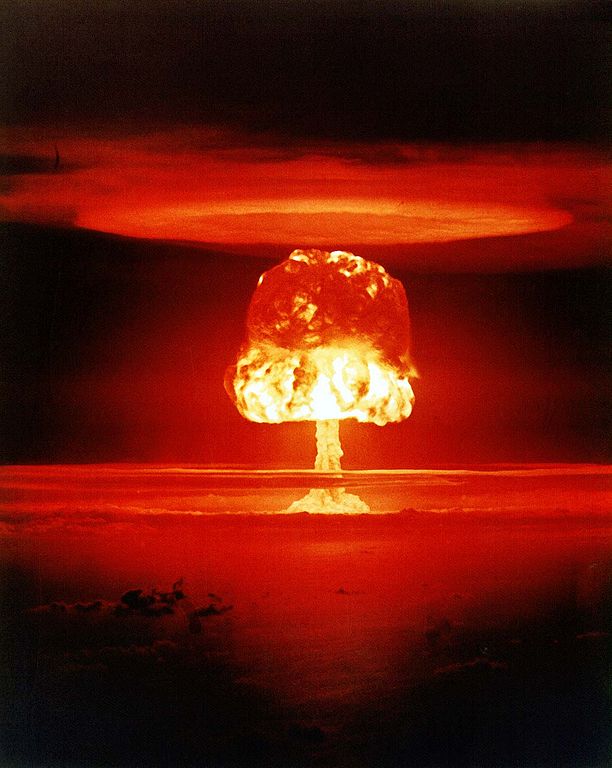There are two opposing theories regarding the question of proliferation and non-proliferation of nuclear weapons. After the advent of the nuclear age, nuclear weapons have been a central topic for debate within academia, foreign-policy communities and think tanks. Kenneth Waltz and Scott Sagan, two prominent scholars of International Relations have proposed two different theories to address the problem.
Kenneth Waltz was an advocate of nuclear proliferation. He was a strong supporter of “Rational Deterrence Theory”. He believed the world would be safer if more countries had nuclear weapons. According to Waltz, proliferation would bring more peace for the following reasons:
- Nuclear weapons make war less likely because nuclear weapons encourage both defense and deterrence. The possibility of total annihilation in a nuclear war makes states more careful and miscalculation more difficult. Nuclear weapons dissuade attack both on home territory and on vital strategic interests.
- Weak and small countries will not use nuclear weapons irresponsibly. There is a good chance that they will be defeated in a conventional war. Nukes are their last resort, so they will save their nukes for final battles. They will only use those nukes if survival is at stake, certainly not for reckless invasion.
- It is not possible to completely stop the proliferation of nuclear weapons because states will continuously attempt to improve their security environment.
- In a nuclear war both parties will be destroyed, so no one will be tempted to use nuclear weapons in a war.
- Nuclear weapons act as a deterrent force; meaning, if you have nuclear bombs other countries will be discouraged to initiate a war in the first place for the fear of nuclear annihilation.
- A state calculates the costs and benefits before going to war. If costs outweigh benefit then there will be no incentives to start a war. In a nuclear war, there are no benefits; it will only increase your costs, so nuclear weapons can prevent wars.
- The acquisition of nuclear weapons makes states “exceedingly cautious” and they will not fight if they can’t win much and stand to lose everything. Prominent realist thinker John Mearsheimer supports Kenneth Waltz by stating that “nuclear weapons are a superb deterrent” (New York Times 1998).
Scott Sagan’s arguments against the proliferation of nuclear weapons
- Sagan used “Organizational Theory” to make his points against the spread of nuclear weapons. He observes that behavior of military and state are not same. States go to war to achieve broader political gains; but military is solely focused on victory, which means defeating the enemy in a narrow margin may still be considered a victory for the military. So, the military will be tempted to use nukes if they are not effectively controlled by the state.
- States do not manage their nuclear arsenal themselves. Organizations under the supervision of states control nuclear weapons. Organizations have biases and parochial interests. If states do not strongly control them then it may result in deterrence failure.
- Certain institutions maintain and supervise nuclear weapons. Institutions have inherent organizational weaknesses, so the proliferation of nuclear weapons is a risky business.
- A state or group of states will preemptively attack a proliferating state to destroy or hinder its nuclear program. For example, Israel preemptively attacked Syrian nuclear facilities in 2007 to destroy its nuclear program. An action of this kind will jeopardize regional stability and security.
- The accidental launch of nuclear weapons may lead to unnecessary nuclear war.
- Electronic errors, misinformation, panic, or enormous pressure on leadership during a war can lead to an inadvertent nuclear exchange.
Experts and scholars both from realist and liberal camps, in general, discourage nuclear proliferation. They support a strong NPT and reduction of existing nuclear stockpiles. International organizations, the international community, and most of the states are opposed to nuclear proliferation. After weighing pros and cons, it seems to me that non-proliferation, as well as the elimination of all nuclear weapons, is the best choice to ensure global peace and security.

Md. Aslam Hossain is a part-time senior editor of The Geopolitics. He is also an entrepreneur. He has earned his Bachelor of Arts and Master of Arts in International Relations. His focus is on geopolitics and security.


